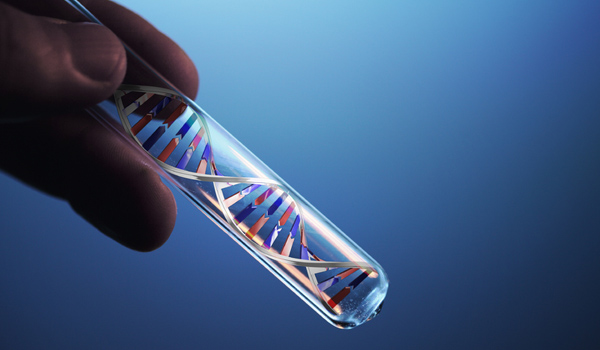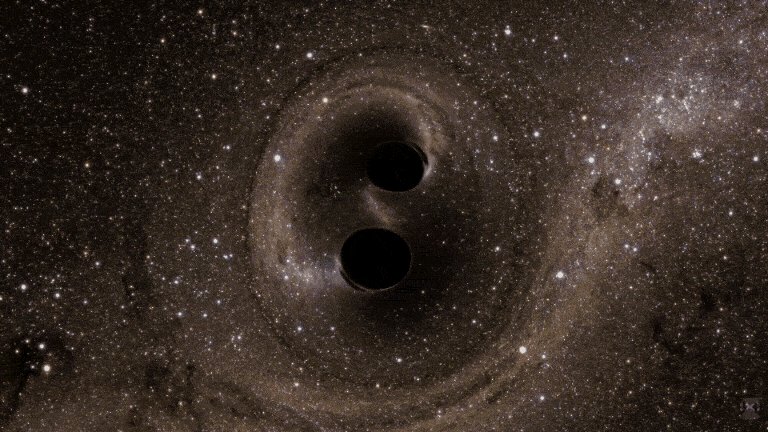4 Ways the Gene Patent Ruling Affects You

Get the world’s most fascinating discoveries delivered straight to your inbox.
You are now subscribed
Your newsletter sign-up was successful
Want to add more newsletters?

Delivered Daily
Daily Newsletter
Sign up for the latest discoveries, groundbreaking research and fascinating breakthroughs that impact you and the wider world direct to your inbox.

Once a week
Life's Little Mysteries
Feed your curiosity with an exclusive mystery every week, solved with science and delivered direct to your inbox before it's seen anywhere else.

Once a week
How It Works
Sign up to our free science & technology newsletter for your weekly fix of fascinating articles, quick quizzes, amazing images, and more

Delivered daily
Space.com Newsletter
Breaking space news, the latest updates on rocket launches, skywatching events and more!

Once a month
Watch This Space
Sign up to our monthly entertainment newsletter to keep up with all our coverage of the latest sci-fi and space movies, tv shows, games and books.

Once a week
Night Sky This Week
Discover this week's must-see night sky events, moon phases, and stunning astrophotos. Sign up for our skywatching newsletter and explore the universe with us!
Join the club
Get full access to premium articles, exclusive features and a growing list of member rewards.
The Supreme Court is due to rule by the end of June on the landmark question of whether companies have the right to patent genes.
One party in the case is Myriad Genetics, a company that by 1998 had patented two genes strongly linked to breast and ovarian cancer risk, called BRCA1 and BRCA2.
Since then, thousands of genes have been patented.
Opponents argue that genes are products of nature, which cannot be patented. Myriad counters that when researchers "discover" genes and patent them, these genes are isolated from the human genome, and therefore can be patented. The benefits that patents bring (a temporary market monopoly) provide incentive and funding for researchers to "discover" genes in the first place, Myriad says.
A big concern about gene patents is that they hinder genetic research — once one company has patented a gene, other researchers may fear infringing on that patent by conduct further research on it, the argument goes. But outside the world of research, the ruling will also have effects on patients, critics argue. Here are four effects of gene patents on patients:
Access to genetic testing
Some say gene patents restrict access to genetic testing, and in some cases, prevent patients from being tested at all. For instance, because Myriad owns the patents on BRCA1 and BRCA2, women who want to be tested for mutations in these genes must use the Myriad test, which costs about $3,000 and is not always covered by insurance.
Get the world’s most fascinating discoveries delivered straight to your inbox.
If for some reason a company that owns a gene patent stops providing the test for it, patients may not be able to get the test at all. For instance, although the University of Utah Research Foundation patented a gene linked with the condition Long QT syndrome, it was not able to offer a test for the condition for a two-year period, according to a 2009 brief filed by the American Medical Association in support of the plaintiff in the gene patent case. (Long QT syndrome is a heart condition that can cause irregular heartbeats, and in some cases, sudden death.) In that period, other labs were prohibited from offering the test, and at least one person died from undiagnosed Long QT syndrome, the brief says.
Getting a second opinion
Myriad's patents on BRCA1 and BRCA2 have prevented patients from getting a second opinion about their test results, critics argue. For instance, a plaintiff in the Supreme Court case, Ellen T. Matloff of Yale Cancer Center, said that in 2006 she knew of a patient who had had breast and ovarian cancer who tested negative for BRCA1 and BRCA2, suggesting that this patient's cancers were not the result of a hereditary condition, according to the New York Times.
But when Yale researchers requested to retest the patient for mutations the Myriad test might have missed, they were prohibited from doing so, the Times reported. Later, the patient's daughter developed breast cancer.
Myriad eventually introduced another test to look for mutations their earlier test missed.
Myriad's patents also prevent researchers from improving the genetic test for mutations in BRCA1 and BRCA2, and offering an independent test to confirm Myriad's results, the AMA brief says.
"As a result, women may have their breasts or ovaries removed unnecessarily when they received a false positive on a BRCA1 or BRCA 2 test because they do not have access to an independent confirmatory test," the brief says.
Discovering what mutations mean
Researchers concerned about patent infringement may abandon research on mutations within patented genes, hindering progress to understand all of a mutation's effects. In a 2001 survey, close to 50 percent of researchers in the American Society for Human Genetics said that they have had to limit their research because of gene patents, according to the AMA brief.
Clinical trials of treatments for ovarian and related cancers would benefit from knowledge of patients' gene mutations, but in many trials, the cost of genetic testing is prohibitively expensive, the brief says.
Myriad argues that scientific research has not been limited by their patent, and says that there have been more than 10,000 scientific papers published on BRCA.
Dr. Kirk Manogue, vice president of technology transfer at The Feinstein Institute for Medical Research in Manhasset, N.Y., said that there have been some safeguards built in to allow research on patented genes to continue without infringement on patent rights.
Higher costs
Myriad's patents on the BRCA1 and BRCA2 genes means that it has a monopoly on genetic testing for mutations in those genes, and is able to charge a higher price for the test than it would if there was a competitive market.
Because of this monopoly, the test likely costs more than it would if others were allowed to offer competing tests, the AMA brief says.
The actual cost to the company for testing for BRCA1 and BRCA2 mutations is about $200, substantially less than what Myriad charges patients, according to NPR. Myriad says that the high price is needed to earn back the money the company spent researching the genes and developing the test.
In addition, while innovators are trying to lower the cost of whole-genome sequencing to less than $1,000, it's possible that gene patents may add to the cost. If every gene in the human genome were patented and required a $100 royalty fee, those fees would add up to more than $2.5 million, the AMA brief says.
However, Manogue said it's not clear that whole-genome sequencing infringes on the rights of gene patent holders. Gene patents might not apply to genes in the context of whole genomes, Manogue said.
Pass it on: Gene patents affect both genetic research and access to genetic tests for patients, critics of gene patents argue.
This story was provided by MyHealthNewsDaily, a sister site to LiveScience. Follow Rachael Rettner @RachaelRettner. Follow MyHealthNewsDaily @MyHealth_MHND, Facebook & Google+.

Rachael is a Live Science contributor, and was a former channel editor and senior writer for Live Science between 2010 and 2022. She has a master's degree in journalism from New York University's Science, Health and Environmental Reporting Program. She also holds a B.S. in molecular biology and an M.S. in biology from the University of California, San Diego. Her work has appeared in Scienceline, The Washington Post and Scientific American.
 Live Science Plus
Live Science Plus










